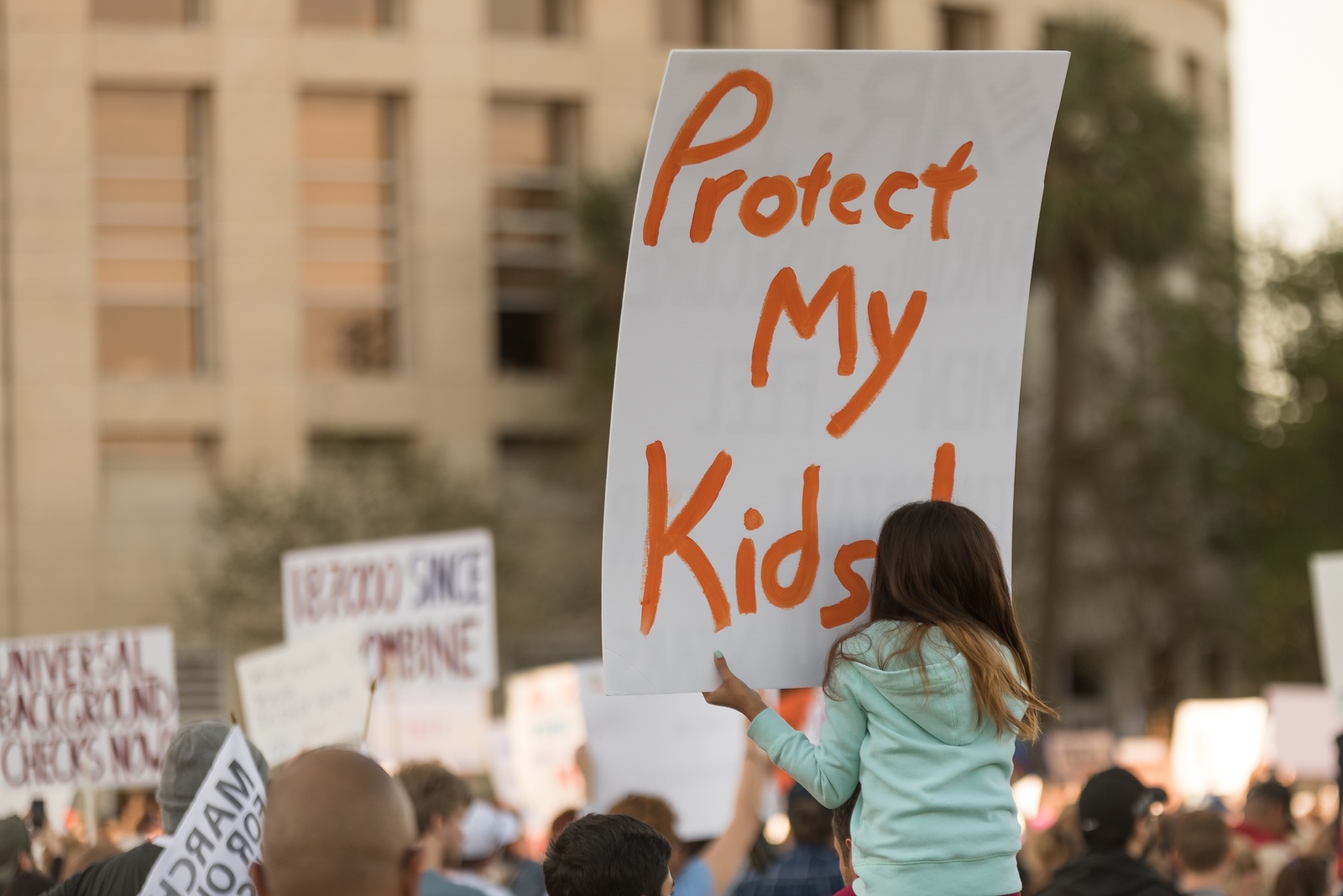
The State of Florida and the National Rifle Association are at arms—almost quite literally.
With the largest number of gun sellers per capita in the nation and what many consider to be lenient gun laws, Florida has been called the “Wild West of the South.” But following a school shooting in Parkland, Florida that took the lives of 17 people and wounded 17 more, the public’s cry for action could not be ignored. In a move that surprised many and broke from his traditional NRA leanings, Florida Governor Rick Scott signed a sweeping $400 million school safety bill into law, aiming to implement new gun control measures.
Hours later, the NRA filed a lawsuit challenging the bill.
So what does this mean for Sunshine State gun owners and gun control advocates—and those who identify as both? It’s safe to say there has been much confusion surrounding the bill and the NRA’s corresponding lawsuit, so we’re here to set the record straight by simply presenting the facts, letting you be the judge.
First, let’s first take a look at what the bill does—and what it doesn’t do.
The Florida State Senate Bill 7026
The new Florida State Senate Bill 7026, otherwise known as the “Marjory Stoneman Douglas High School Public Safety Act” after the Parkland school in which the shootings occurred, aims to do the following:
- Restrict gun purchases to those age 21 and up (from 18 and up).
- It does not prohibit ownership for 18-20 year olds, nor does it apply to guns exchanged between family members.
- It does not apply to those serving in the military, working in law enforcement, or members of the Junior Reserve Officers’ Training Corps (JROTC).
- Require a three-day waiting period on purchases.
- This does not apply to the aforementioned military and law enforcement members, nor does it apply to those with a valid hunting license.
- Allow selected school employees to carry firearms under the Coach Aaron Feis Guardian Program (named for the Stoneman Douglas coach who died shielding students from gunfire) following completion of a 132-hour training program.
- This excludes employees whose primary duty is to teach within a classroom environment; coaches, janitors, cafeteria workers, and librarians are some that would be eligible as Guardians.
- Implementation of a Guardian program is up to individual counties who can opt-in (with the support of the Sheriff’s Department) or opt-out.
- Prohibit a person who has been deemed mentally ill or has been committed to a mental institution in the past from owning or possessing a firearm.
- Official relief granted by medical health professionals stating the individual it fit to own firearms can lift the restriction on a case-by-case basis.
- Prohibit the sale and possession of bump-fire stocks (a bump-fire stock is an attachment that allows a semi-automatic to fire in rapid succession, nearly as fast as a fully-automatic machine gun).
- Award grants through the Crime Stopper Trust Fund for student crime watch programs and increase criminal penalties for those making threats to schools through various means including social media.
- Require every school in Florida to create a Threat Assessment Team to meet monthly and review potential threats to school and staff, and establish an “Office of Safe Schools” within the Department of Education that would include schools with metal detectors, bulletproof glass, steel doors, and upgraded locks.
Following the signing of the bill, Governor Scott addressed the crowd that had gathered at the Florida Capitol Building in Tallahassee. “You made your voices heard,” he said. “You didn’t let up and you fought until there was change. You helped change our state. You made a difference. You should be proud.”
The National Rifle Association Lawsuit
The NRA lawsuit does not argue with all the provisions of the bill; in fact it supports numerous aspects of the bill, including the ability for schools to increase security and the goal of keeping guns away from people who are considered mentally ill. Where contention lies, however, is with the age restriction.
The NRA’s suit states that the Senate Bill is an affront to the second amendment and turns a select group of individuals into second-class citizens. In particular they argue that:
- The bill takes away the right of law-abiding adults between the ages of 18 and 21 to keep and bear arms.
- They further contend that people who are 18 years old and above are considered adults “for almost all purposes and certainly for the purposes of the exercise of fundamental constitutional rights.”
- The bill is particularly unfair to young women in this same age group, who are much less likely to engage in violent crime.
- That Florida already prevents individuals under 21 from buying certain types of guns, and that the bill unconstitutionally broadens the restriction.
“It’s gratuitous gun control,” said Marion Hammer, the NRA’s Florida lobbyist who opposes the waiting period and bump-fire restrictions in addition to age limits. “We oppose punishing law-abiding gun owners. This [bill] punishes law-abiding gun owners for the acts of a criminal and the failure of the FBI, DCF and the SRO (School Resource Officer).”
Where Do You Stand?
It’s a complex and understandably touchy subject: what one considers common sense, another considers an infringement on rights.
Again, while our hearts ache for our fellow Floridians and all other victims of violence, we’re not here to weigh in; rather, our goal is to simply keep you informed by organizing the facts and presenting them in a meaningful way that allows you to form your own opinions on the matter.
Just as we look at both sides in each case we tackle, we want to give you the opportunity to do so too. At Lowman Law Firm, we’re always looking out for you.

